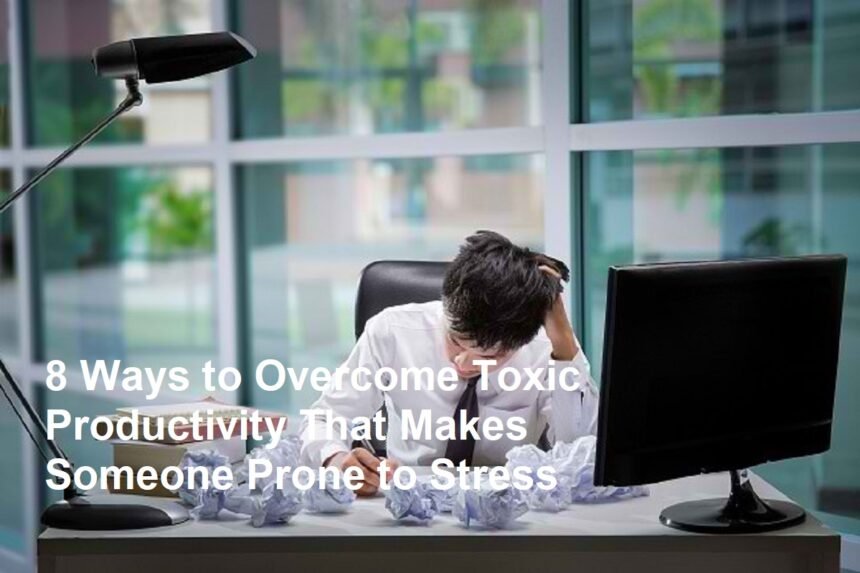Introducing
In today’s fast-paced and achievement-oriented society, productivity is highly valued. While striving to accomplish goals and being efficient can be positive traits, an obsession with constant productivity can lead to what is known as toxic productivity—a dangerous cycle that jeopardizes mental health, increases stress, and causes burnout.
Toxic productivity is characterized by the relentless pursuit of work or accomplishments at the expense of personal well-being, rest, and balance. People caught in this trap often feel guilty for taking breaks, find it difficult to say no, and struggle with feelings of inadequacy whenever they slow down. If left unchecked, this mindset can make someone extremely prone to stress, anxiety, and even severe health issues.
Fortunately, there are effective ways to break free from toxic productivity and restore a healthier relationship with productivity and self-care. Here are 8 strategies to overcome toxic productivity and reduce stress.
1. Recognize the Signs of Toxic Productivity
The first step is awareness. Pay attention to signs such as feeling guilty for taking breaks, constantly scrolling through to-do lists, obsessing over perfectionism, or feeling anxious when not working. Recognizing these patterns helps you understand that your productivity may be crossing into harmful territory. Once aware, you can begin to make conscious changes.
2. Set Boundaries and Define Work Hours
One of the biggest contributors to toxic productivity is the inability to disconnect. Establish clear boundaries for work and personal time. Decide on specific hours dedicated to work and commit to unplugging afterward. Avoid checking emails or working beyond those hours, and communicate your boundaries with colleagues or clients if necessary.
Creating these boundaries allows your mind to switch off and relax without guilt, reducing stress and preventing burnout.
3. Prioritize Self-Care and Rest
Rest is vital for mental and physical health. Incorporate self-care routines into your daily life—whether it’s sleeping well, exercising, meditating, or engaging in hobbies. Recognize that rest is not laziness but a necessary component of productivity and well-being.
By valuing self-care, you stop equating productivity with constant activity and start appreciating the importance of downtime for renewal and stress reduction.
4. Practice Mindfulness and Self-Compassion
Mindfulness helps you stay present and aware of your thoughts and feelings without judgment. When you notice the urge to overwork, pause, breathe, and reflect on whether it’s truly necessary.
Self-compassion involves treating yourself with kindness instead of criticism. Acknowledge that taking breaks or making mistakes is part of being human, and you don’t always need to be perfect. Cultivating self-compassion reduces feelings of guilt and stress associated with slowing down.
5. Reframe Your Definition of Productivity
Change the narrative around what it means to be productive. Instead of equating productivity solely with work output, consider other meaningful activities—like spending quality time with loved ones, engaging in hobbies, or simply relaxing. This broader view encourages a healthier balance and mitigates toxic perfectionism.
6. Limit Social Media and External Pressures
Social media often perpetuates unrealistic standards of success and constant achievement, fueling toxic productivity. Reduce your consumption or unfollow accounts that trigger comparison or stress. Focus on your own journey rather than external validation.
Limiting exposure to these pressures helps you develop a healthier perspective on productivity and personal value.
7. Delegate Tasks and Say No When Necessary
Overloading yourself with responsibilities accelerates stress and burnout. Learn to delegate tasks at work or home and practice saying no to additional commitments that don’t align with your priorities or capacity. Setting realistic expectations protects your mental health and keeps your workload manageable.
- Seek Support and Professional Help
If feelings of stress, anxiety, or burnout become overwhelming, don’t hesitate to seek support. Talk to trusted friends, family, or mental health professionals who can offer guidance and coping strategies. Therapy can help uncover underlying causes of toxic productivity and develop healthier habits.
Conclusion
While productivity is valuable, toxic productivity can be detrimental to your mental and physical health. By recognizing its signs and implementing these 8 strategies—setting boundaries, practicing self-care, fostering self-compassion, and seeking support—you can overcome stress and develop a more balanced, fulfilling approach to life.
Remember, true productivity isn’t about doing everything at once; it’s about doing what matters most while respecting your well-being. Make intentional choices to prioritize your health and happiness, and you’ll find that success and fulfillment naturally follow.












